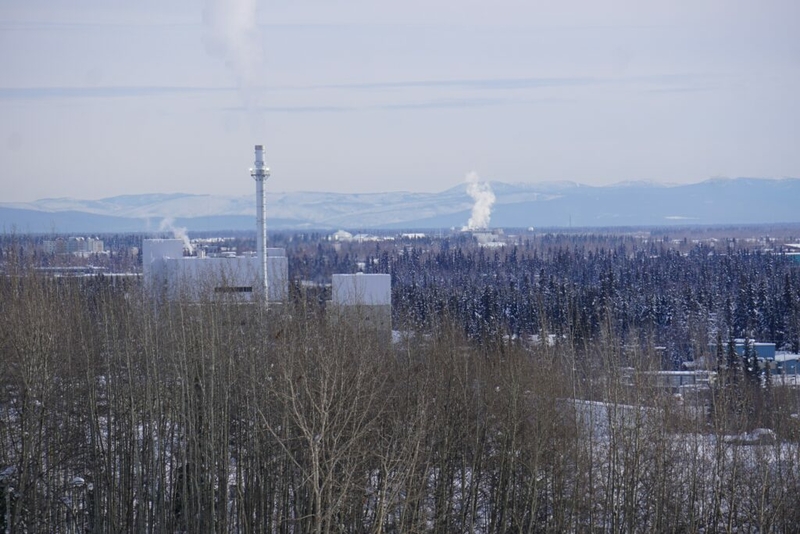Legislative resolution takes aim at EPA wood-stove certification in Fairbanks

A resolution pending in the Alaska Legislature urges both the U.S. Environmental Protection Agency and the Alaska Department of Environmental Conservation to do more to address wintertime air pollution in Fairbanks.
House Joint Resolution 11 calls on the federal agency to improve a wood-stove certification program that has been deemed ineffective. It also calls on the state to develop an “economically and legally defensible state implementation plan” to achieve federal air-quality standards in the Fairbanks area.
The resolution is sponsored by Rep. Will Stapp, R-Fairbanks, and has bipartisan support, including from all Interior House members, who are cosponsors.
It addresses one element of what has been a persistent problem in the Fairbanks area: high levels of fine particulate pollution in the air that has, at times, been among the worst in the nation.
Nearly surrounded by mountains, the Fairbanks area is beset by wintertime air inversions that trap particulate pollution, with stagnant cold air held fast by higher layers of warmer air. A heavy reliance on wood-burning stoves is considered a factor; nearly 40% of Fairbanks North Star Borough houses burn wood for heat, according to EPA.
A recent review by EPA’s inspector general found that the agency’s national wood-stove certification program was flawed. While EPA spent about $82 million in grants for programs across the nation to change out residential wood heaters from 2015 to 2021, many of the replacement models failed to meet emissions standards, said the inspector general’s report, which was released on Feb. 28.
However, Fairbanks residents seeking to upgrade their wood stoves are able to use a state list of recommended products.
Wintertime air quality in the Fairbanks North Star Borough has improved significantly in recent years. Fine particulate pollution during winter days with atmospheric inversions has been cut in half since 2015, said EPA spokesman Bill Dunbar, who cited state data and progress reports. In 2015, the average level of fine particulate pollution on those days was about 130 micrograms per cubic meter, he said; by last winter, the level was down to the 60s and 70s, he said.
Still, the Fairbanks North Star Borough has not yet reached the federal standard of 35 micrograms per cubic meter for those winter days, he said.
The issue gained some additional urgency after EPA in January issued a mixed preliminary verdict on the state’s most recent plan for getting Fairbanks’ winter air to federal standards. EPA found that while parts of the air-quality attainment plan submitted by the state Department of Environmental Conservation would be positive steps, other parts of the plan were not acceptable. EPA faulted the state plan for failures to justify omissions of requirements for “best available control technology” for coal-fired and oil-fired electricity generation or use of ultra-low-sulfur diesel for heating.
EPA is considering public comment on the matter and expects to issue a final decision on whether to approve the state air-quality plan by the end of the year, Dunbar said.
Fairbanks business leaders have argued that EPA is asking for measures that are too expensive and that, because of the wood-stove certification problems, the agency bears some of the blame for the poor air quality. “Before the EPA forces our community to implement various control measures, they should take the necessary steps to fix their faulty wood stove certification program. . . .The EPA’s failure to have a reliable wood stove certification program likely resulted in installing wood stoves that did little to reduce particulate emissions,” said a letter from the Greater Fairbanks Chamber of Commerce that supports the legislative House Joint Resolution 11.
Meanwhile, scientists are studying the sources and patterns of and possibly remedies for Fairbanks’ air pollution.
Efforts include a broad-ranging program at the University of Alaska Fairbanks. That research program found, for example, that a switch to low-sulfur fuels resulted in reductions in winter air pollution.
One recent study with UAF coauthors found that during strong inversions, local levels of particulate pollution can vary dramatically between neighborhoods, while levels are more uniform during weak inversions.








